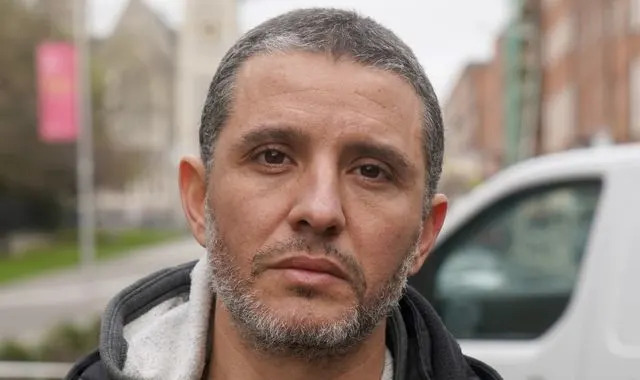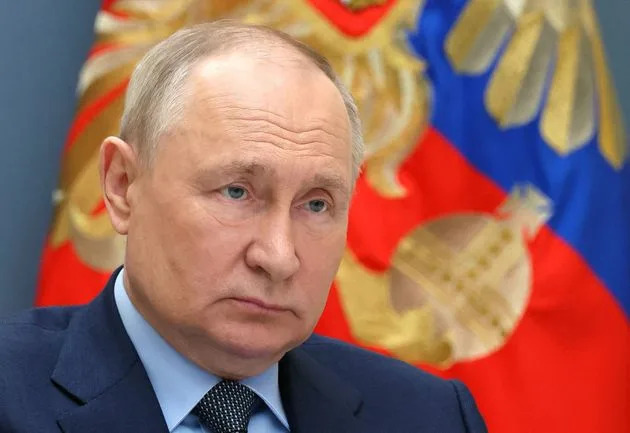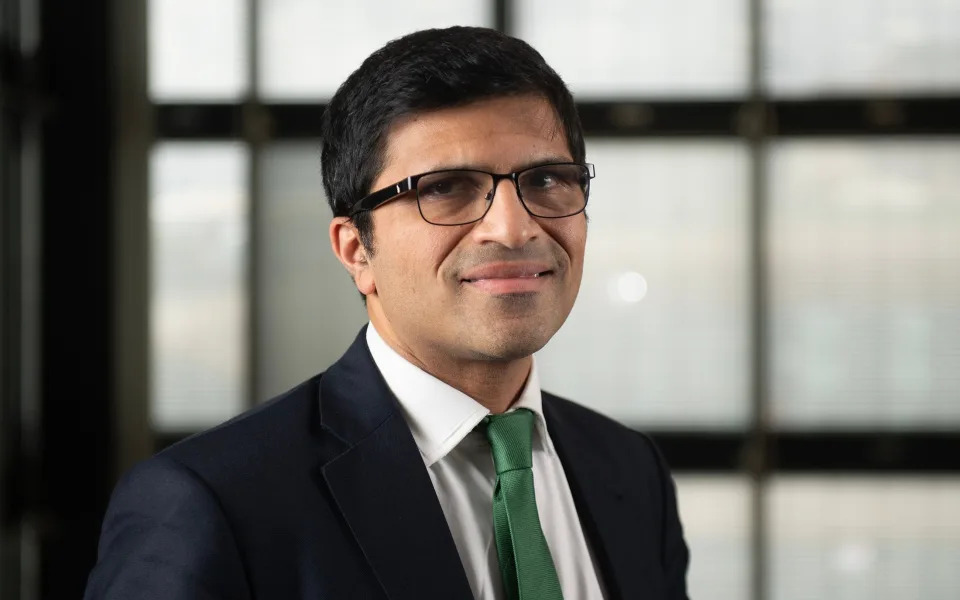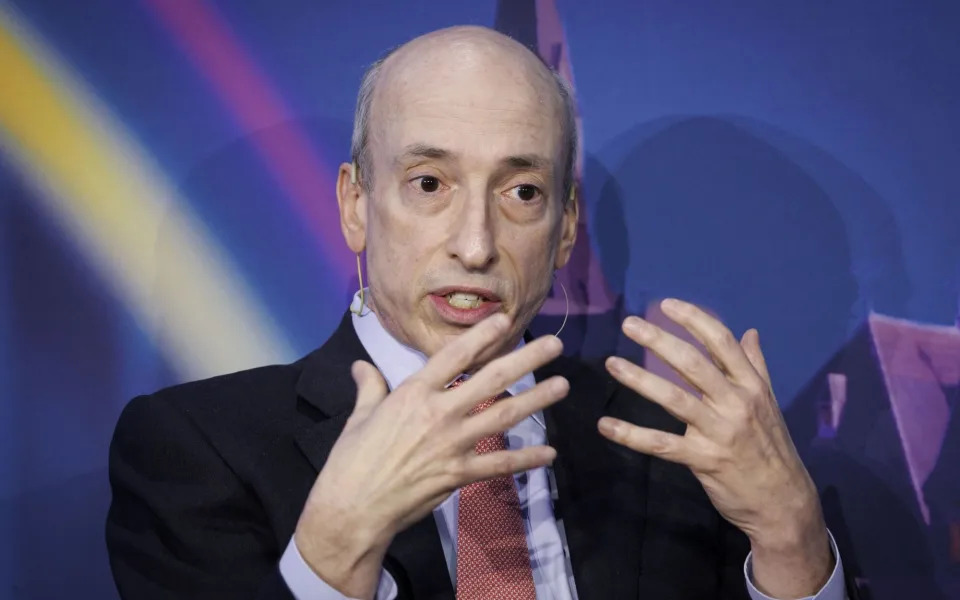Nick Squires
Fri, 24 November 2023

A Dublin man told members of an anti-immigration WhatsApp group to unleash violent attack 'that gets on the news'
Hours after a lone knifeman plunged his weapon into three young schoolchildren on the streets of Dublin, a call to arms was made.
A small but vocal minority took to social media to instigate the worst night of rioting the Irish capital has witnessed in decades.
Their fury was stoked by unsubstantiated online reports that the man who attacked the children was from Algeria.
The chilling aim of the riots for one so-called “patriot”: “kill all foreigners”.
“At seven o’clock, be in town. Everybody bally [balaclava] up, towel up, and any f---ing gypo, foreigner, anyone, just kill them. Just f---ing kill them. Let’s get this on the f---ing news,” a Dublin man said in a voice message to an anti-immigration WhatsApp group titled “Enough is enough”.
Over the next few hours on Thursday evening, chaos unfolded.
Riot police were attacked, vehicles set on fire and shops looted along one of Dublin’s most famous thoroughfares, O’Connell Street.
In one video clip, a group of young men wearing balaclavas and branded tracksuits entered a McDonalds and emerged moments later declaring they had stolen one of the restaurant’s charity boxes, used to collect money for a children’s hospital in the city.
Ireland’s oldest department store, Arnotts on Henry Street, was also attacked, with a gang breaking in and ransacking its shelves shortly after it had closed.
Shoplifters laughed and shouted as they carried mannequins out of the 180-year-old establishment.
The store’s chief executive said on Friday the scenes had left his staff, some of whom were reportedly still in the store at the time, “shaken”.
A FootLocker outlet on O’Connell Street was looted and remained closed yesterday, after some of its stock was stolen and its front windows were smashed.
The violent anti-immigration rioters quickly turned their ire on police, one of whom was seriously injured.
A lone, unarmed policeman was filmed being encircled and tackled by a group of young men on O’Connell Bridge.
At one point, a young man set alight a cardboard box, throwing it inside an unoccupied, parked police car, as onlookers cheered and the vehicle caught fire. Rioters fired flares and fireworks at police officers, several of whom were injured, one seriously.
As the night unfolded, images resembling a war zone emerged, as a tram and double-decker bus were set alight in the city centre.
The driver of the bus, who is from Mauritius but has lived in the country for 15 years, told Irish media that rioters had stopped the bus at traffic lights and started banging on the windscreen, telling him: “Get out of the bus or we will kill you”.
The rioting appeared to be well planned. Protesters told each other to spread out to make it harder for police to stop the rampage.
“They can’t control us all. Let’s have little groups splintering off, doing what we have to do,” said the man on the Whatsapp group.
“Let’s show the f---ing media that we are not a pushover and that no more foreigners are allowed into this poxy country. Enough is enough. This is it, the straw that broke the camel’s back. You touch our f---ing kids and these are the repercussions.”
On X, people were urged to flood the centre of Dublin to vent their fury at the attack on the schoolchildren.
“Get the train, get the bus, but most importantly, get to Dublin and stand with your fellow Irish people,” one person wrote.
Such was the extent of the violence, the Rotunda, a maternity hospital on Parnell Street, near the scene of Thursday’s stabbing, was forced to tell patients not to travel there “unless necessary”.
Protesters’ fury came even before the police had revealed the motivation of the attacker or his ethnicity. They clashed with police, yelling “get them out, get the f--- out” in apparent reference to migrants.
The hashtag #enoughisenough was trending on social media, with one man writing: “I think Ireland has had a gutful of diversity and cultural enrichment which has led to the attempted murder of three young girls in the heart of Dublin.”
The National Party, a tiny, far-Right, anti-immigration party which has no MPs in parliament, put out a message on X in which men were ordered to “man up” to “make Ireland safe for women and children”.
The message, which was viewed more than 22,000 times, said: “Are you happy to sit and watch Irish children stabbed or will you man up and fight back?”
The violence unfolded on the streets of the city as a reaction to the stabbing attack in which a man attacked three young children with a knife as they came out of their school in the heart of Dublin in the early afternoon.
One witness described the scene as “absolute bedlam”.
Another said: “The kids were out walking. All of a sudden, one of them fell to the ground, then another fell to the ground, then another falls to the ground. Then this guy started running past.”
Police initially said there was no political or terrorist motivation to the attack, but at a later briefing, the commissioner of police said that could not be ruled out.
There is speculation that the man may have suffered a psychotic episode. He is not believed to have a link to the school.
Drew Harris, the police commissioner, described the rioting as “disgraceful” and called the protesters a “complete lunatic faction driven by far-Right ideology”.
“We have seen a group of people who take literally a thimble full of facts and make a bathtub of hateful assumptions and then conduct themselves in a way which is riotous and disruptive to our society,” he added.
Thousands raised for Deliveroo driver who helped halt Dublin knife attack
Sky News
Updated Sat, 25 November 2023

More than €285,000 (£250,000) has been raised for a Deliveroo driver who helped halt a knife attack outside a primary school in Dublin.
Brazilian delivery man Caio Benicio has been hailed a hero after he subdued the knifeman by hitting him on the head with his motorbike helmet.
Three young children and a creche worker, believed to be in her 30s, were injured in the attack in the Irish capital just after 1.30pm on Thursday.
Read more: What's going on in Dublin?
A five-year-old girl and woman remain in a serious condition in hospital, police said earlier.
Riots later broke out in the city on Thursday night in a rampage which officers blamed on a "lunatic faction driven by far-right ideology".
Police have not revealed any further details about the attacker or his motivation, but have said the incident did not appear to be terror-related.
But, in an apparent rebuff to anti-immigrant commentary online and from some rioters, an online fundraising page called "Buy Caio Benicio a pint" has gone viral and had already raised more than €280,000 (£240,000) by late on Friday night.
Many of those who have donated praised the Brazilian for his bravery.
Another appeal in aid of the victims has also raised more than €160,000 (£140,000) - with the combined total raised heading towards half a million Euros.
Read more from Sky News:
Devastated mother pays tribute to son killed in crash
Man caught trying to smuggle cocaine in dog's crate
Watchdog to probe fatal police shooting
Earlier on Friday the delivery driver described how he was travelling past the school when he saw the attacker grab a girl and take out a knife.
"When I saw the knife, I stopped my bike and I just acted by instinct," he told the PA news agency.
Mr Benicio added that he took his helmet off and hit the man in the head "with all of my power".
The father-of-two added: "I didn't even know there was more kids that were (hurt) at that time. I thought it was just one girl but afterwards I (found) out there are more people, more kids.
"I wish the family all the best. I pray for her to survive."
When asked about the riots, Mr Benicio said: "I'm here for about 20 years now, I don't know politics here deeply to have an opinion about it.
"What I can say is I know the protest is against immigrants and for me it doesn't make sense because I'm an immigrant myself and I was the one who helped out."
Taoiseach Leo Varadkar said anyone who risked their lives to save lives are "real Irish heroes, whatever their nationality", while his deputy Micheal Martin said Mr Benicio's part "should not be forgotten".
He added: "We had a horrific, violent attack on children and adults, we think of them and we think of the Deliveroo person who came along to save the situation, perhaps for other children," he said.
Police have arrested 34 people following Thursday night's violence, in which a bus, tram and police vehicles were set on fire.
More than a dozen businesses were also severely damaged or looted.
Sky News
Updated Sat, 25 November 2023

More than €285,000 (£250,000) has been raised for a Deliveroo driver who helped halt a knife attack outside a primary school in Dublin.
Brazilian delivery man Caio Benicio has been hailed a hero after he subdued the knifeman by hitting him on the head with his motorbike helmet.
Three young children and a creche worker, believed to be in her 30s, were injured in the attack in the Irish capital just after 1.30pm on Thursday.
Read more: What's going on in Dublin?
A five-year-old girl and woman remain in a serious condition in hospital, police said earlier.
Riots later broke out in the city on Thursday night in a rampage which officers blamed on a "lunatic faction driven by far-right ideology".
Police have not revealed any further details about the attacker or his motivation, but have said the incident did not appear to be terror-related.
But, in an apparent rebuff to anti-immigrant commentary online and from some rioters, an online fundraising page called "Buy Caio Benicio a pint" has gone viral and had already raised more than €280,000 (£240,000) by late on Friday night.
Many of those who have donated praised the Brazilian for his bravery.
Another appeal in aid of the victims has also raised more than €160,000 (£140,000) - with the combined total raised heading towards half a million Euros.
Read more from Sky News:
Devastated mother pays tribute to son killed in crash
Man caught trying to smuggle cocaine in dog's crate
Watchdog to probe fatal police shooting
Earlier on Friday the delivery driver described how he was travelling past the school when he saw the attacker grab a girl and take out a knife.
"When I saw the knife, I stopped my bike and I just acted by instinct," he told the PA news agency.
Mr Benicio added that he took his helmet off and hit the man in the head "with all of my power".
The father-of-two added: "I didn't even know there was more kids that were (hurt) at that time. I thought it was just one girl but afterwards I (found) out there are more people, more kids.
"I wish the family all the best. I pray for her to survive."
When asked about the riots, Mr Benicio said: "I'm here for about 20 years now, I don't know politics here deeply to have an opinion about it.
"What I can say is I know the protest is against immigrants and for me it doesn't make sense because I'm an immigrant myself and I was the one who helped out."
Taoiseach Leo Varadkar said anyone who risked their lives to save lives are "real Irish heroes, whatever their nationality", while his deputy Micheal Martin said Mr Benicio's part "should not be forgotten".
He added: "We had a horrific, violent attack on children and adults, we think of them and we think of the Deliveroo person who came along to save the situation, perhaps for other children," he said.
Police have arrested 34 people following Thursday night's violence, in which a bus, tram and police vehicles were set on fire.
More than a dozen businesses were also severely damaged or looted.








